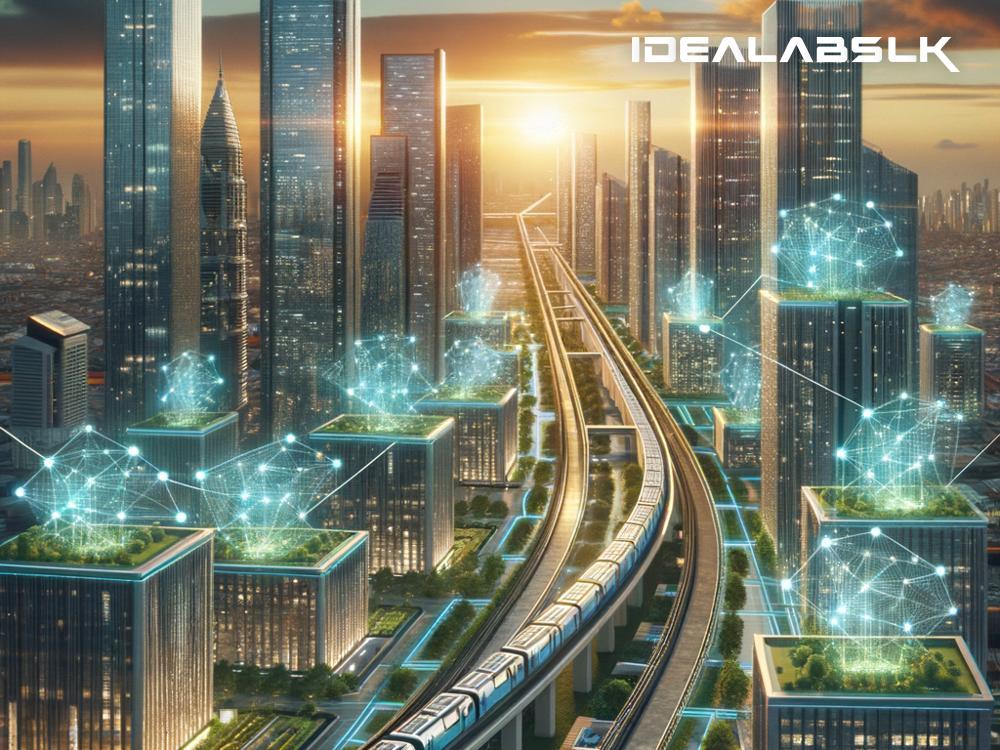Embracing the Future: How Blockchain and Real Estate are Shaping Smart Cities
In our rapidly evolving world, two revolutionary concepts are converging to redefine how we live, work, and interact: Smart Cities and blockchain technology. As urban areas morph into smart cities—urban environments where technology and data are used to improve the quality of life for residents—real estate is undergoing a transformation, too. Blockchain, the technology behind cryptocurrencies like Bitcoin, is at the heart of this change. But how do these high-tech terms relate to each other, and more importantly, how do they impact our daily lives? Let's dive in.
The Foundation of Smart Cities
Smart cities represent the pinnacle of combining technology with city living. These cities use sensors, data analytics, and other technology to manage assets, resources, and services efficiently. The goal is to enhance the quality of life for their inhabitants, ensuring sustainability, convenience, and security. But for a smart city to flourish, it needs more than just integrated technology—it needs a robust and transparent real estate sector.
Enter Blockchain
This is where blockchain comes in. Blockchain is essentially a digital ledger, a secure and transparent way to record transactions. It's decentralized, meaning it isn't controlled by one single entity, but rather by a network of computers. This technology has the power to revolutionize several industries, real estate being one of them.
Transforming Real Estate for Smart Cities
Blockchain can transform the real estate industry in a host of ways. Here are some key areas of impact:
1. Efficiency and Transparency
Traditionally, real estate transactions are anything but straightforward. They involve a slew of intermediaries—lawyers, brokers, banks, and more—making the process not just lengthy but expensive. Blockchain introduces smart contracts, self-executing contracts with the terms directly written into code. These contracts automatically enforce and verify the terms of a contract, cutting out the middlemen and making transactions quicker, cheaper, and more transparent.
2. Tokenization
Tokenization is another buzzword worth knowing. In simple terms, it's the process of turning real estate, or any asset really, into digital tokens on the blockchain. This can democratize real estate investment, allowing people to buy shares in a property much like you'd buy stocks in a company. For smart cities looking to encourage investment and make real estate more accessible, this is a game-changer.
3. Fraud Reduction
Real estate fraud is a concern in many parts of the world. The immutable nature of blockchain, where once something is recorded it cannot be altered, makes it an effective tool in fighting fraud. It ensures that property records are secure and tamper-proof, providing a clear, unquestionable history of ownership.
4. Enhanced Data Management
In a smart city, data is king. Blockchain can aid in the efficient management and sharing of data regarding real estate—be it availability, price history, or property specifications. This can be crucial in city planning, development, and in providing services more tailored to the residents' needs.
Real-world Applications
While this might all sound futuristic, the integration of blockchain in real estate is already happening. Several projects around the world are experimenting with smart contracts for leasing and purchasing properties, tokenizing assets, and recording property titles on the blockchain. Countries like Sweden, Georgia, and the United Arab Emirates are exploring blockchain for land registries and transaction records.
Embracing the Future
For smart cities to truly become the future of urban living, the real estate sector needs to evolve, and blockchain offers a pathway. The potential benefits are substantial: more efficient transactions, increased trust and security, and opening up the investment landscape to a broader range of people.
However, this transformation won't happen overnight. Challenges such as regulatory hurdles, technological infrastructure, and public acceptance must be addressed. But as technology continues to advance, and as more cities and businesses experiment with blockchain, its integration into real estate could very well lay the foundation for the smart cities of the future.
In a nutshell, as we march towards a future peppered with smart cities, the symbiosis between blockchain and real estate isn't just exciting; it's essential. By merging these realms, we're not just redefining what it means to live in urban environments; we're opening doors to a world where technology and living spaces coexist in harmony, making our cities smarter, more sustainable, and inclusive. The age of smart cities powered by blockchain isn't just coming; it's already beginning. And it promises to reshape the urban landscape in ways we're only beginning to imagine.

